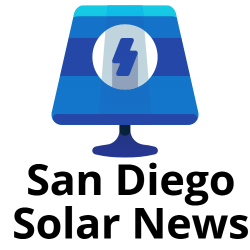Audubon solar system to cowl 100% of the electrical energy wants of the Little Rock Middle; Solar system partnership introduced – talkbusiness.internet
The conservation organization National Audubon Society is the first non-profit organization in Arkansas to run 100% solar energy with its 35-kilowatt solar array at Little Rock Audubon Center. Meanwhile, on Tuesday (April 13), OMCO Solar announced a partnership with Little Rock-based renewable energy company Entegrity Energy Partners.
The National Audubon Society According to a press release, a ceremony was held on Tuesday for the new array, which will supply all of the center’s electricity needs. The center at 4500 Springer Boulevard in Little Rock will also have a Solar Learning Lab, which is geared towards kindergartens for 12th grade students and nonprofit executives. North Little Rock-based solar power developer Scenic Hill Solar built the facility.
Officials at the ceremony emphasized the importance of approving Law 464 and how this project would not have been possible without it. In 2019, Audubon led a coalition to pass the state’s Solar Access Act, which allowed nonprofits to leverage third-party funding agreements to monetize federal clean energy tax incentives and enable nonprofits to source commercial solar power.
Gary Moody, director of state and local climate strategy for the National Audubon Society, explained the long road to go to complete the array and that the organization must do its part in helping North American birds.
“For Audubon, this facility is about living our values,” said Moody. “In 2015 we published Birds and Climate [Change] Report. It is clearly stated that climate change is the greatest threat to birds in North America. More than half of our species are threatened by changing effects on the climate. We knew that if we were to do our job protecting birds and the places that need them now and in the future, we must also change how we generate and use energy. For us, this wasn’t just a choice for solar. Helping our birds live and thrive was imperative.
Gary Moody, director of state and local climate strategy for the National Audubon Society, speaks in a ceremony to celebrate the opening of a solar panel at the Little Rock Audubon Center. (Photo by Susan Williamson for the National Audubon Society).
“We’re also excited to lead by example as the first 100% solar nonprofit in the state,” he added. “In addition to installing a solar power plant to meet our solar needs, we’re also installing a Solar Learning Lab so we can share solar technology with the students who come on field trips around the center and with other nonprofit executives who want to join our example and benefit from solar energy with their systems. “
The array will enable the center to save approximately $ 10,000 annually that it can use on educational programs and statewide rehabilitation programs, he noted.
Bill Halter, CEO of Scenic Hill Solar, said Act 464 resulted in more than $ 250 million in investments across Arkansas.
“When you look back and see this power plant, imagine that there are literally multiples of it across the state of Arkansas that create local jobs and promote economic development in communities that often struggle. [and] Provision of property tax revenue, ”said Halter. “Every kilowatt hour of electricity generated by solar energy is one kilowatt hour that we do not have to generate using gas, oil or coal.”
Over the next 30 years, the new solar array at Little Rock Audubon Center will reduce CO2 emissions and remove 2.7 million car miles from the freeway. The Solar Learning Lab will also include the floor-mounted solar system connected to the center’s electricity meter, an interactive exhibition on indoor solar technology, and two curricula.
“To protect the birds we love and the places they have to survive, it is important that we as an organization do everything we can to reduce our own carbon emissions,” said Uta Meyer, manager of Little Rock Audubon Center. “This solar project not only gives us the opportunity to educate the community about the benefits of renewable energies for humans and animals, but also helps ensure that we are part of the solution in everything we do.”
Audubon’s solar project is supported by a 3M Ecogrant and the Maggie Walker Incentive Fund of the National Audubon Society.
“Audubon has been a strong advocate of Smart Solar Policy in Arkansas, and I am delighted that you are now taking advantage of Act 464,” said Senator Dave Wallace, R-Leachville, primary sponsor of the Solar Access Act. “We have seen tremendous economic growth as consumers drive the Arkansas solar market.”
OMCO SOLAR PARTNERSHIP
In cooperation with Entegrity, the solar equipment supplier OMCO Solar from Phoenix will deliver its ORIGIN tracker for 15 megawatt solar projects in Arkansas, according to a press release. As of 2019, OMCO Solar has provided the tracker system for more than 30 projects in several states.
“Achieving more together than we can alone – that’s the power of partnerships and that’s Entegrity,” said Eric Goodwin, director of business development at OMCO Solar. “Not only are they real experts in driving the adoption of solar energy in various industries, but they are also passionate about enabling a sustainable future. Their desire to create learning opportunities to support the growing solar workforce shows their belief in the future of renewable energies. We look forward to working with Entegrity to complete this and more projects in the future. “
OMCO Solar’s first installation with Entegrity was a 1.36 megawatt array for The Cedar Ridge and Midland school districts.
“When we work with OMCO Solar, we can be confident that we are providing our customers with a world-class solution that works optimally with components from other leading suppliers,” said Charles Maddox, Director of Procurement at Entegrity. “We had some important and important opportunities together. We are confident that OMCO Solar will be long-term partners as we continue to develop and implement solutions that fulfill our mission to create a more resilient future. “
The ORIGIN tracker offers several benefits, including enabling long rows of up to 120 modules and eliminating or minimizing gaps across posts, between modules, and at the end of a row. In addition, OMCO Solar produces torque tubes that enable domestic control of the supply chain with nationwide distribution at a lower cost, the press release shows. The torque tube can be one of the most expensive parts of a tracker system, sometimes accounting for up to 25% of its cost.



Comments are closed.